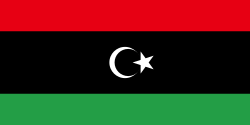Background
The Government on National Unity, headed by Abdul Hamid Dbeibeh, was established in March 2021 and was designed to serve in a caretaker role until a permanent government was established after elections were held. [1] Originally planned for 7 December 2021, the date was moved to 24 December before finally being scrapped days before voting was to take place amid political deadlock and fighting in Tripoli. [2]
Meanwhile, the House of Representatives which is based in eastern Libya, passed a motion of no confidence against the unity government on 21 September 2021. On 10 February 2022, the House appointed Fathi Bashagha as prime minister which established the rival Government of National Stability (GNS), based in Tobruk. [3]
Dbeibeh refused to recognize the GNS or Bashagha, announcing on 22 February 2022 plans to hold elections in June. [4] By May he pushed this proposal to the end of 2022, [5] and later into 2023. [6]
In March 2023, an amendment to the Libyan Constitution was passed by both the House of Representatives and the High Council of State containing thirty-four articles defining a new system of government and the tasks of the elected president and prime minister. [7] [8] However, many issues remained unresolved, casting doubt on the timing of the elections. [7] [9] [10]
This page is based on this
Wikipedia article Text is available under the
CC BY-SA 4.0 license; additional terms may apply.
Images, videos and audio are available under their respective licenses.
